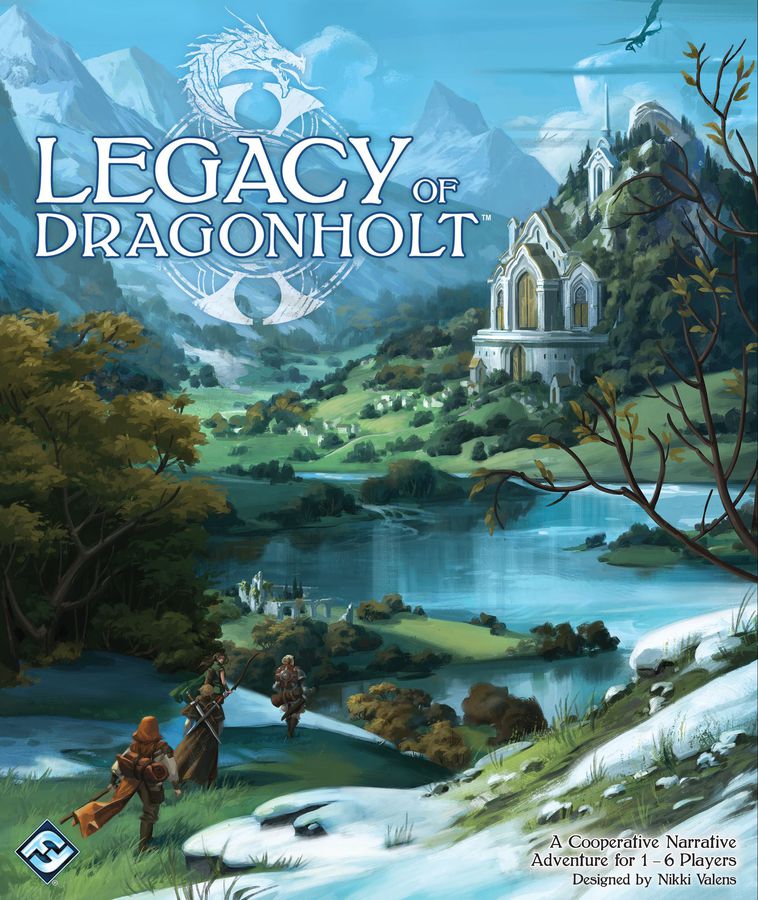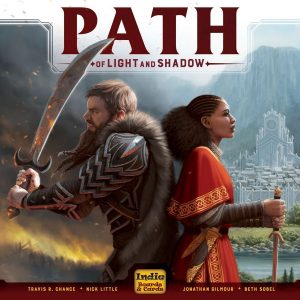Legacy of Dragonholt Review
God save the Queen of Ameritrash! – A Legacy of Dragonholt Review
I’ve been keeping a very close eye on designer Nikki Valens’ work now since 2013’s Eldritch Horror. For those not in the know, Nikki Valens is probably one of the best game designers and developers that everybody forgets when they put together their top lists of designers. This is thanks in no small part to Fantasy Flight Games team approach to development which results in some de-emphasis of the work of individual game designers, much in the same way a video game studio TYPICALLY gives credit to the entire game studio rather than individual team members. The same could be said to a lesser extent of Corey Konieczka, and was certainly true of designers like Kevin Wilson and Eric Lang before they left FFG.
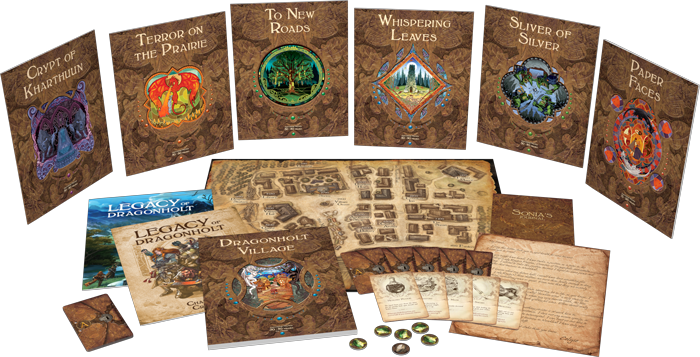
A point of frustration for me is just how little “press” Nikki Valens has received as more and more media content producers have discussed the role of women in gaming and the growing number of women designing game. Most of these discussions begin and end with Inka Brand, however, for 4 years Nikki has quietly become the Queen of Ameritrash thanks to her work on some of the most highly narrative titles of recent years (Eldritch Horror, Mansions of Madness 2.0, and serving as the Story Master for the Arkham Horror Files). With Legacy of Dragonholt, it has become impossible to ignore the fact that she has become one of the most important story tellers in modern gaming.
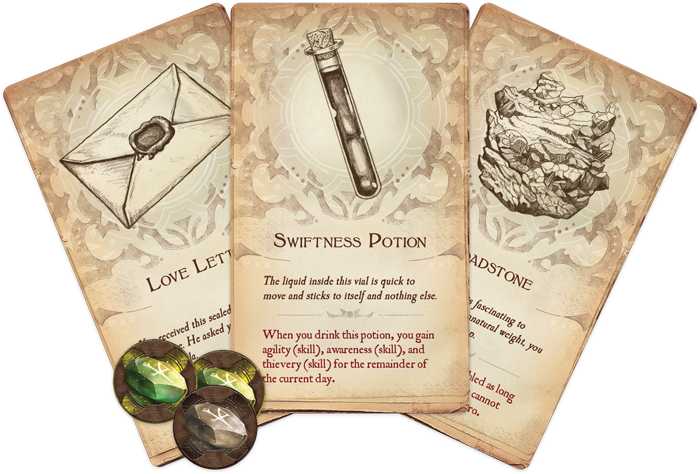 Legacy of Dragonholt is a tricky thing to describe without doing it some sort of disservice, miss-characterizing things, or just plain spoiling the plot. I would begin by saying that if you come in expecting Sherlock Holmes: Consulting Detective set in the Runebound universe, I think you will be sorely disappointed. In LOD players create their own in game avatar. This process feels like a significantly watered down RPG character creation. You’ll pick a race, a job, and a hand full of skills. Nothing too complex, but that is the point. Character in hand, you and your party of up to 6 will work your way through what amounts to a complex decision tree, sort of like what you’d expect in a Telltale Games‘ style adventure game or a complex Fighting Fantasy book.
Legacy of Dragonholt is a tricky thing to describe without doing it some sort of disservice, miss-characterizing things, or just plain spoiling the plot. I would begin by saying that if you come in expecting Sherlock Holmes: Consulting Detective set in the Runebound universe, I think you will be sorely disappointed. In LOD players create their own in game avatar. This process feels like a significantly watered down RPG character creation. You’ll pick a race, a job, and a hand full of skills. Nothing too complex, but that is the point. Character in hand, you and your party of up to 6 will work your way through what amounts to a complex decision tree, sort of like what you’d expect in a Telltale Games‘ style adventure game or a complex Fighting Fantasy book.
Players each have an action marker they flip whenever they get to make a choice in the story. Once flipped, they don’t get to make a decision or use their skills until every player flips their markers in turn. Not only does this help keep everybody at the table involved in the decision making, but it makes for some strategic choices about when it is most important for certain characters to act or wait and see what happens. In action this round structure is typical of the rules and design choices found throughout the game. Whenever possible, the game chooses to preserve narrative immersion. Anything that would serve to detract from players enjoying the story has been cut away. The end product is an experience that feels more carefully edited and produced then anything I’ve ever experienced in a board game or game book.
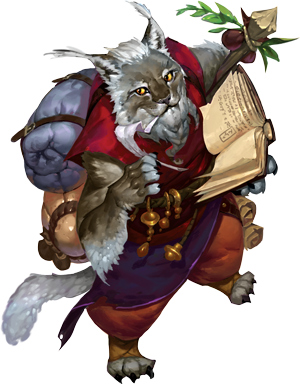 Like the earlier Fighting Fantasy style books, you do track gold, inventory, and XP. Like some of the more complex Sherlock Holmes modules (and Mythos Tales), the passage of time is tracked and often effects how the story unfolds. Like Mythos Tales and most Telltale Games, you track decisions, events, and knowledge you acquire. This last point is what LOD does particularly deftly and elegantly. Sometimes, when you make a decision the game instructs you to put a check mark on a particular spot on a large grid of events. This track of events is frequently referred to by the game to determine how characters react to you and how events unfold. Unlike Telltale Games, the decisions you make FEEL like there are real consequences to you choices. I can escape encounters in radically different manners based not only on my immediate choices, but also on choices I made much earlier. Better yet, most of the decision points you run into aren’t binary. Often times you’ll be confronted with 3 or more choices depending on what skills your characters have. If you’ve been playing western style videogame RPGs in the past 20 years, you will be very familiar with this idea, especially veterans of the Fallout games. The more skills you and your party have, the more choices you get to make during conversations or during action sequences. Just like in the videogames, you will be strongly tempted to pick these special choices whenever they show up, often times to spectacular effect.
Like the earlier Fighting Fantasy style books, you do track gold, inventory, and XP. Like some of the more complex Sherlock Holmes modules (and Mythos Tales), the passage of time is tracked and often effects how the story unfolds. Like Mythos Tales and most Telltale Games, you track decisions, events, and knowledge you acquire. This last point is what LOD does particularly deftly and elegantly. Sometimes, when you make a decision the game instructs you to put a check mark on a particular spot on a large grid of events. This track of events is frequently referred to by the game to determine how characters react to you and how events unfold. Unlike Telltale Games, the decisions you make FEEL like there are real consequences to you choices. I can escape encounters in radically different manners based not only on my immediate choices, but also on choices I made much earlier. Better yet, most of the decision points you run into aren’t binary. Often times you’ll be confronted with 3 or more choices depending on what skills your characters have. If you’ve been playing western style videogame RPGs in the past 20 years, you will be very familiar with this idea, especially veterans of the Fallout games. The more skills you and your party have, the more choices you get to make during conversations or during action sequences. Just like in the videogames, you will be strongly tempted to pick these special choices whenever they show up, often times to spectacular effect.
That leads me into LOD’s strongest point in its favor. The solid and often times cinematic writing throughout LOD is spectacular. The writing exceeds anything I’ve seen in a board game (save perhaps Mansions of Madness 2.0) when it comes to the action sequences. LOD gives me the same positive feelings I felt the first time I played each of the Uncharted videogames. These moments of action come off as vibrant, thrilling, and unpredictable joy rides. Your choices are rewarded with compelling passages that feel like they are taken from directly from a R. E. Howard pulp novel (minus the overt sexism and exploitation). The dialog sequences come off a bit less captivating and often are forgettable aside from a couple of the more memorable NPCs, but at the very least they offer you a moment to catch your breath.
Something else that LOD tries to add to the choose-your-own-adventure model is the occasional use of puzzles that calls back to something you’d expect to see from an escape room or a Time Stories module. These fun puzzle moments are integrated seamlessly into the narrative and don’t feel quite as forced as an escape room. Best of all, unlike Time Stories, you aren’t bogged down with those lousy dice based skill checks that are utter tripe.
Your time in Dragonholt is well worth the price of admission. I would estimate that a normal group playing at a 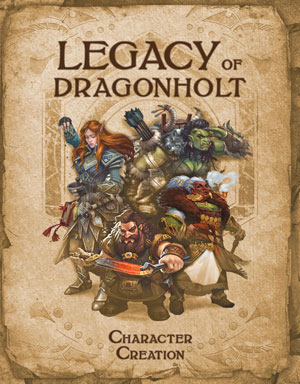 normal pace is going to spend at LEAST 20 hours, and probably more finding their way through the game, and that doesn’t include they time you may spend “cheating” to see alternative results. I have played Dragonholt with my 2 11 year old twins and the game has gone over amazingly well. Both kids have demanded we play the game now every night since I bought our copy. If you have younger gamers, I think this is a no brainer game to try out with them, especially as an introduction to role playing. If you want a collaborative or solo choose-your-own-adventure saga Dragonholt will be a great fit for you to.
normal pace is going to spend at LEAST 20 hours, and probably more finding their way through the game, and that doesn’t include they time you may spend “cheating” to see alternative results. I have played Dragonholt with my 2 11 year old twins and the game has gone over amazingly well. Both kids have demanded we play the game now every night since I bought our copy. If you have younger gamers, I think this is a no brainer game to try out with them, especially as an introduction to role playing. If you want a collaborative or solo choose-your-own-adventure saga Dragonholt will be a great fit for you to.
Dragonholt is a winner of a gaming experience because it offers a very simple rule set that allows for a very smooth gaming session, while telling a pulpy good adventure yarn. Dragonholt, like Mansions of Madness 2.0, is one of those watershed moments in game design that shows just what possibilities there are in narrative gaming and I hope that we see more games like this in the future. I find myself craving an Arkham Horror setting where I can use the dozens of characters from The Arkham Horror Files. I want a sci-fi epic that evokes Mass Effect. Heck, I’d be interested in seeing a modern crime drama like the game Heavy Rain. If Legacy of Dragonholt can get me excited about a setting I don’t really care one bit about, I can barely contain my excitement at the thought of playing in a setting that excites me. I hope that Dragonholt is just the beginning, and I can’t wait to see what Nikki Valens is working on next!
God save the Queen of Ameritrash! BGG Rating 10.0
Scott Sexton
Scott Sexton is an avid boardgame enthusiast who regularly posts reviews on BoardGameGeek - You can subscribe to his Review Geeklist here and check out his contributions to Brawling Brothers here.

